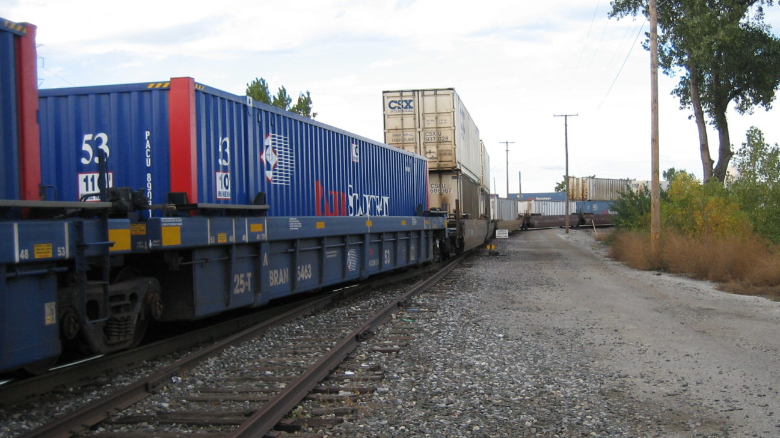Transportation
Four Design Teams Named for $4.6B Project to Clear Chicago Rail Bottlenecks

The goal is to eliminate bottlenecks on railroads in the Chicago area.
Photo courtesy of CREATE partners
A project aimed at eliminating bottlenecks in crisscrossing railroads in the Chicago area is advancing with the selection of four engineering teams to design the largest piece. The Belt Junction and 80th Street Junction Replacements, part of a $1-billion project, calls for replacement or rehabilitation of nearly 100 bridges and other structures along a six-mile stretch.
Partners behind the Chicago Region Environmental and Transportation Efficiency (CREATE) program announced the selections by Norfolk Southern Aug. 23. Parsons Corp. leads two design package teams, and Hanson Professional Services Inc. and Gannett Fleming Inc. each lead one team.
The CREATE teams expect to submit designs for approval in 2025. Funding for construction of the project, also known as EW2, is not yet secured.
This portion of the CREATE program “is one of the nation’s most ambitious bridge replacement projects,” Ruth Brown, Norfolk Southern’s chief engineer for bridges and structures, said in a statement.
EW2 is part of the $1-billion 75th Street Corridor Improvement Project (CIP) under the $4.6-billion CREATE program. The program, a partnership of Chicago, Illinois' Cook County, the U.S. Dept. of Transportation (U.S. DOT), Metra, Amtrak and various freight railroads, includes more than 70 projects.
The CREATE partners are using a $132-million Infrastructure for Rebuilding America grant from the U.S. DOT for final design of the 75th Street CIP.
The 75th Street CIP covers an area on Chicago’s south side where two passenger and four freight rail lines meet. EW2 is aimed at eliminating Belt Junction, which the CREATE partners say is the most congested rail bottleneck in the Chicago area. On a typical day, 90 freight trains, 30 Metra trains and two Amtrak trains cross paths there.
Under EW2, portions of the Belt Railway Co., Norfolk Southern and Union Pacific tracks will be reconfigured to eliminate conflicting paths with Metra and Amtrak.
 The EW2 project is part of the 75th Street Corridor Improvement Project. Map courtesy of CREATE partners
The EW2 project is part of the 75th Street Corridor Improvement Project. Map courtesy of CREATE partnersNorfolk Southern, which is managing the structural design for more of the structures under EW2, said it broke the work into four packages because of the project’s complex phasing and the number of structures needing detailed plans.
Each of the four selected teams also includes a slate of smaller certified disadvantaged-business enterprises to handle pieces of the work and meet the CREATE team’s 30% DBE participation goal. The DBE goal is part of a commitment “to spread economic and educational opportunities throughout the community,” Valerie Nesbitt, Norfolk Southern’s director of supplier inclusion and sustainability, said in a statement.
Work started last year on another portion of the 75th Street CIP, which involves construction of a flyover bridge to reduce freight congestion and connect Metra’s Southwest Service and Rock Island District tracks. Work is also underway on a project to separate 71st Street from the CSX line.
Other planned portions of the 75th Street CIP include a second main track for Metra’s Southwest Service from near Wrightwood Station to Western Avenue and improvements to various other signals, tracks, crossovers and bridges in the area.





